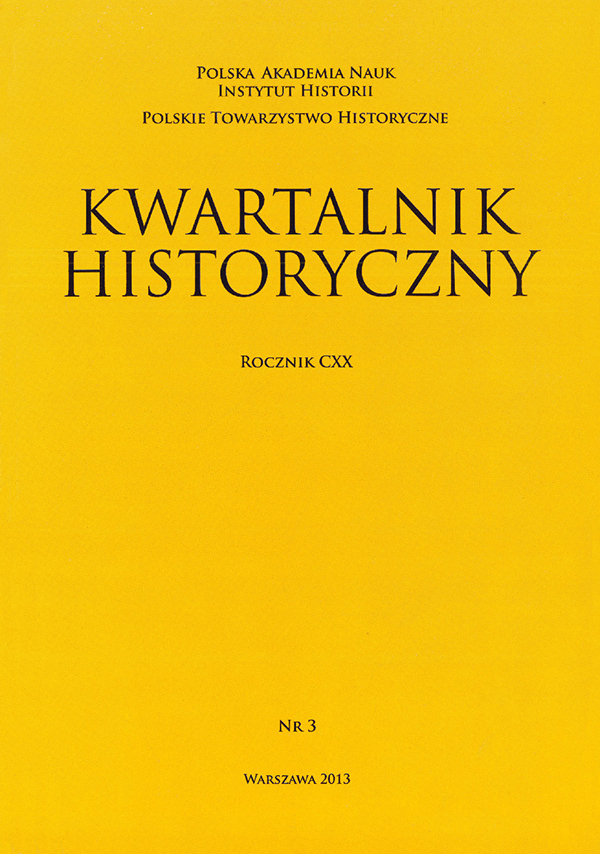Na manowcach. W związku z nową książką Jarosława Wenty o Gallu Anonimie i jego Kronice
DOI:
https://doi.org/10.12775/KH.2013.120.3.06Abstrakt
Astray. In Connection with a New Book by Jarosław Wenta about Gallus Anonymous and His Chronicle
The new book by Jarosław Wenta (Kronika tzw. Galla Anonima. Historyczne (monastyczne i genealogiczne) oraz geograficzne konteksty powstania, Toruń 2011) offers a rather original but unfortunately totally unsuccessful attempt at resolving the question of the identity of Gallus Anonymous. The fundamental premises of the presented deliberations prove to be disturbingly weak: without sufficient confirmation in existing sources the author assumed the existence of relations between the chronicler and one of the centres close to the Piast dynasty (e.g. Bamberg, Saint-Gilles, Zwiefalten and St. Blasien) as well as that he was a relative or an in-law of members of the Past and Arpad dynasties, and ascribed to him pro-Bavarian and pro-Saxon leanings. Theses about the personal enmity of the Anonymous towards the Salic dynasty and his connections with circles propagating monastic reform also appear to be insufficiently justified. The supposition that Gallus was called “Pilgrim” – which Wenta attempted to confirm in “peregrinus”, which the chronicler used to describe his status – remains sheer fantasy. In this situation complicated genealogical digressions referring to the above-listed premises, with the author trying to attach Gallus to assorted aristocratic South German families (such as von Formbach or von Weimar), are doomed to fail. The same is true for research into the chronicler’s geographic competence (it too is supposed to indicate South German, e.g. Ratisbon roots), which resulted in overly daring conclusions. “Source analyses” contained in the second part of the book consist of tracing in select (small) parts of the Chronicle verbal similarities to other writings. For this purpose, the author resorted to several electronic data bases. Unfortunately, the majority of the indicated verbal coincidences proves to be banal and does not add much new to our knowledge of the erudition of the Anonymous. The thesis about his supposed unfamiliarity with pagan literature – purportedly indicating connections with the Cluny current of monastic reform – gives rise to doubt and calls for much more extensive research.
Pobrania
Opublikowane
Jak cytować
Numer
Dział
Statystyki
Liczba wyświetleń i pobrań: 599
Liczba cytowań: 0



